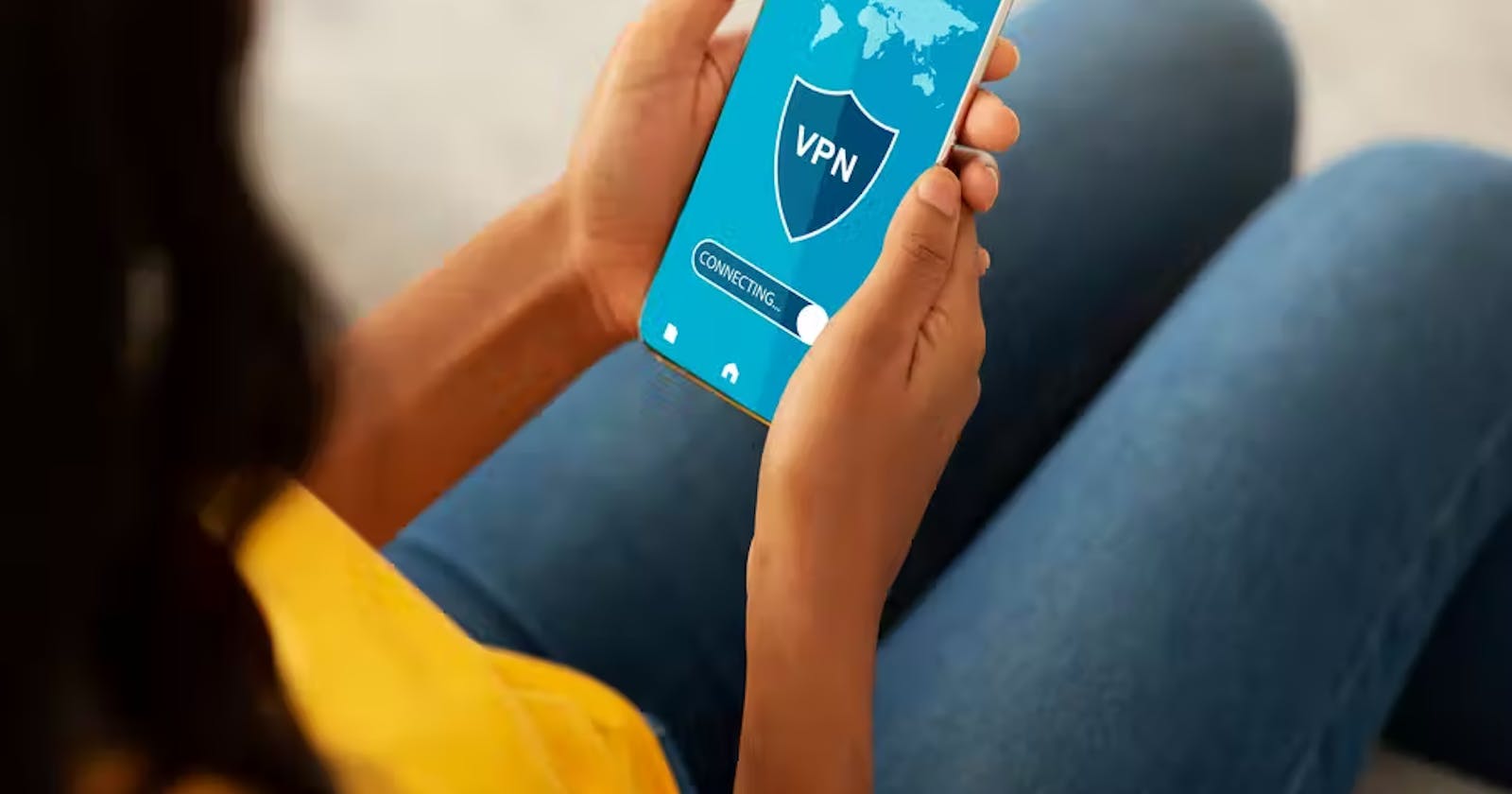I bet the major and most likely the only thing you think VPNs do is to change your location.
 Well, while a VPN changes your location, VPNs are actually created to make our browsing over the net safe and secure. It seems like we spend most of our lives online these days, sharing more personal information than ever before. To make sure our online activity is as safe and secure as possible, many people prefer to use a VPN when connecting to the internet, at home, at work, and on public Wi-Fi.
Well, while a VPN changes your location, VPNs are actually created to make our browsing over the net safe and secure. It seems like we spend most of our lives online these days, sharing more personal information than ever before. To make sure our online activity is as safe and secure as possible, many people prefer to use a VPN when connecting to the internet, at home, at work, and on public Wi-Fi.
📌What is a VPN?
VPN stands for Virtual Private Network. In the simplest terms, a VPN creates a private network connection that you can access on your computer, laptop or mobile device. As the name suggests, they make accessing the internet more private, which can make sharing information online more secure.
📌What is a VPN Connection?
A VPN connection is made up of a network of servers at locations anywhere in the world that are run by a VPN provider. When you establish a VPN connection, all traffic going to and from your device becomes encrypted and then goes through an intermediary server at a location of your choosing thus changing your location to the location of that VPN server that you are connected to.

📌How does a VPN work?
VPN works by connecting you to a set of servers in a process known as tunnelling. These servers act as a ‘virtual home’ on the internet, in a sense moving your online experience into a more secure online network.
As you explore the internet from this secure space, the data that you send and receive is encrypted, which gives you more security and anonymity while online.
Whenever you click on a link or type an address into your browser, your computer sends out a series of communications through a number of computers. Your data travels across your local network, through a number computers on the internet, and through even more computers on the website’s servers, before following the same route back again to return the information to your computer.
When you use a VPN, those data packets are encrypted at the originating point, usually hiding both the data as well as the information about your originating IP address.
There are two types of VPN. The first is a corporate VPN, sometimes called an enterprise VPN, which is often used by companies in order to secure information transfer between two office local networks. A corporate VPN involves controlling both endpoints of the VPN
The second is a consumer VPN, which secures only one endpoint. Which are the type you would use when logging onto public Wi-Fi to secure your information. Consumer VPN services help ensure that your communications on applications such as social networks, email, online shopping and banking are protected.
📌What does a VPN hide?
A VPN hides all your personal information when you access the internet. A VPN encrypts all of your device’s data while rerouting it through a separate server and hides a lot of different types of personal information while online.
A VPN hides your IP address which anonymizes your activities, preventing ISPs, marketers, hackers, and search engines from being able to track your movements online.
A VPN also hides your identity on social media as well as your online shopping habits, which also makes it harder for marketing companies to target you, while at the same time keeping your sensitive information secure.
Finally, a VPN hides your geographic location. As your data is rerouted via intermediary servers and your IP address is hidden, there is no way to track your location directly when you use a VPN.
📌Why use a VPN?
Security Security is the main reason to use a VPN since your data will be encrypted making it more difficult for others to access your browsing activity. This is especially important when entering personal information or payment details like credit card numbers. This is why using a VPN when connecting to public networks is a particularly good idea.
Privacy In much the same way, a VPN also protects your privacy. The encryption provided by a VPN means what you search for, what you say in comments or forums, and what you watch on streaming platforms is kept private and none of anyone else’s business. However, it’s important to remember that a VPN protects the data you transmit from your computer, but it doesn’t necessarily prevent your information being tracked with cookies or other web trackers. A VPN ensures that your communications can’t be intercepted or accessed, but it doesn’t affect application features like cookies.
Virtual location Another popular reason for using a VPN is to give you a virtual location. Accessing the internet via a VPN means you can appear to be browsing from another country. This allows you to access content that might be restricted where you are. This is especially useful when travelling. If you want to continue streaming a show you’re watching back home, or access online banking or personal records, you can use a VPN to access the internet as if you were back home.
There you have it😎. And oh if you love quality and straight forward contents then a sub to the blog would be

